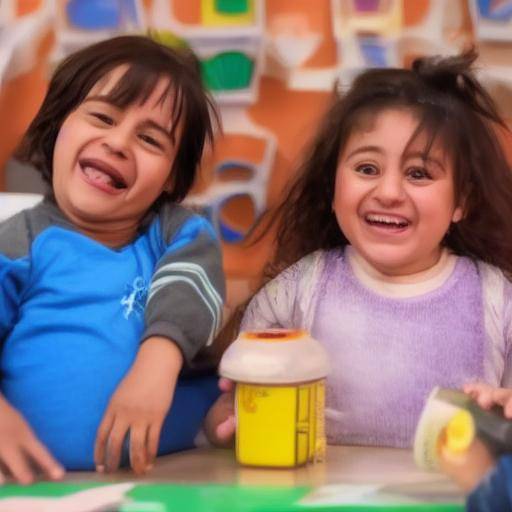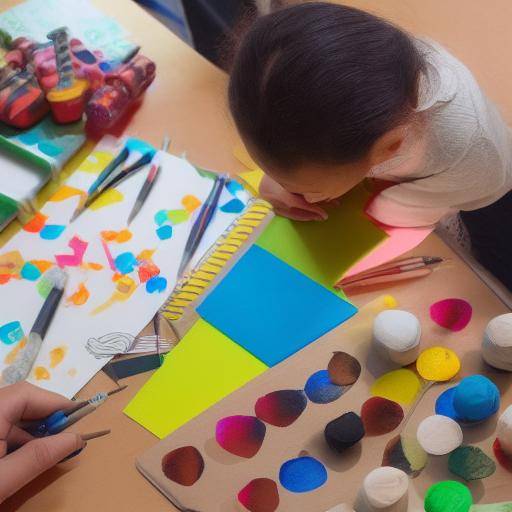
Human beings are social by nature and personal relationships play a fundamental role in their emotional and mental well-being. Within these relationships, gratitude plays a crucial role, as expressing gratitude not only strengthens interpersonal ties, but also generates a positive impact on mental and emotional health. In this article, we will explore in depth the importance of expressing gratitude in personal relationships, how it influences emotional well-being and personal connections, and provide practical advice to encourage gratitude in our daily interactions.
History and background
The practice of expressing gratitude has deep roots in diverse cultures and traditions throughout history. From the philosophical teachings of ancient Greece to the spiritual traditions of Eastern civilizations, gratitude has been regarded as an essential virtue for individual and collective well-being. Over time, it has become a topic of interest in fields such as psychology, sociology and philosophy, promoting a greater understanding of its benefits.
In-depth analysis
With the advent of scientific research in positive psychology, it has been shown that gratitude has significant effects on the emotional well-being of people. Studies have revealed that practicing gratitude regularly is associated with greater satisfaction with life, a reduction of stress and depression, as well as greater emotional resilience. This evidence supports the notion that gratitude is a powerful tool to strengthen mental and emotional health.
Comprehensive review
The expression of gratitude in personal relationships not only has individual benefits, but also strengthens emotional bonds among people. When we show appreciation and appreciation to others, we create an environment of mutual trust and affection. This strengthens emotional connection and fosters stronger and more meaningful relationships.
Comparative analysis
Compared to the individual practice of emotional well-being, gratitude in personal relationships has a multiplier effect on general well-being. While emotional well-being focuses on the individual, gratitude in personal relationships leads that well-being to an interpersonal level, generating a wider and lasting impact on the quality of life of the people involved.
Practical advice and useful advice
To promote gratitude in personal relationships, it is important to practice active listening and to show appreciation for the actions and qualities of those around us. Expressing verbally our gratitude, writing notes of gratitude and performing acts of service are effective ways of fostering a climate of appreciation in our interpersonal relationships.
Industry perceptions and expert opinions
Experts in psychology and interpersonal relationships underline the importance of gratitude in promoting meaningful connections. In addition, they highlight their role in building support networks and strong communities. The cultivation of gratitude in the labour sphere has also proved to improve morality, productivity and job satisfaction.
Cases of study and applications in real life
Many cases have been documented where the expression of gratitude has transformed lives and relationships. From family environments to work spaces, the practice of gratitude has demonstrated its ability to restore confidence, promote empathy and generate a sense of belonging in social groups.
Future trends and predictions
As awareness of the importance of gratitude in personal relationships continues to grow, more people and organizations are expected to actively integrate gratitude into their daily practices. This trend has the potential to generate significant changes in the way we relate to each other, promoting more positive and healthy environments.
Conclusions
Gratitude in personal relationships not only enriches our lives and connections, but also contributes significantly even greater emotional well-being and the construction of stronger and supportive communities. By fostering an environment of mutual appreciation, we strengthen our relationships and create a positive impact on our environment.
Frequently asked questions
**Why is it important to express gratitude in personal relationships?**The expression of gratitude strengthens emotional ties, promotes trust and creates an environment of mutual appreciation in interpersonal relationships, which contributes to emotional well-being and to building stronger communities.
**How can I encourage gratitude in my personal relationships?**You can encourage gratitude by verbally expressing your appreciation, writing notes of gratitude, and practicing active listening to show recognition for the actions and qualities of those around you.
**What benefits does gratitude have in personal relationships?**Gratitude in personal relationships is associated with greater satisfaction with life, a reduction in stress and depression, as well as greater emotional resilience, strengthening emotional ties and promoting stronger and more meaningful relationships.
**How does gratitude influence emotional well-being?**The practice of gratitude is associated with greater emotional well-being, promoting feelings of joy, optimism and empathy, and reducing anxiety and depression.
**What is the effect of gratitude in the field of work?**In working environments, gratitude promotes morals, productivity and job satisfaction, creating a more positive and collaborative working environment.
**What is the long-term impact of cultivating gratitude in personal relationships?**To cultivate long-term gratitude strengthens emotional ties, promotes a sense of community and contributes positively to the general well-being of the people involved, generating a lasting impact on their quality of life.
In short, the expression of gratitude in personal relationships is essential to nurture solid emotional ties, promote emotional well-being and build stronger and supportive communities. By raising awareness of the importance of gratitude in our daily interactions, we can foster a world where mutual appreciation and emotional connection are fundamental pillars of our human relations.
Thank you for reading!






















































